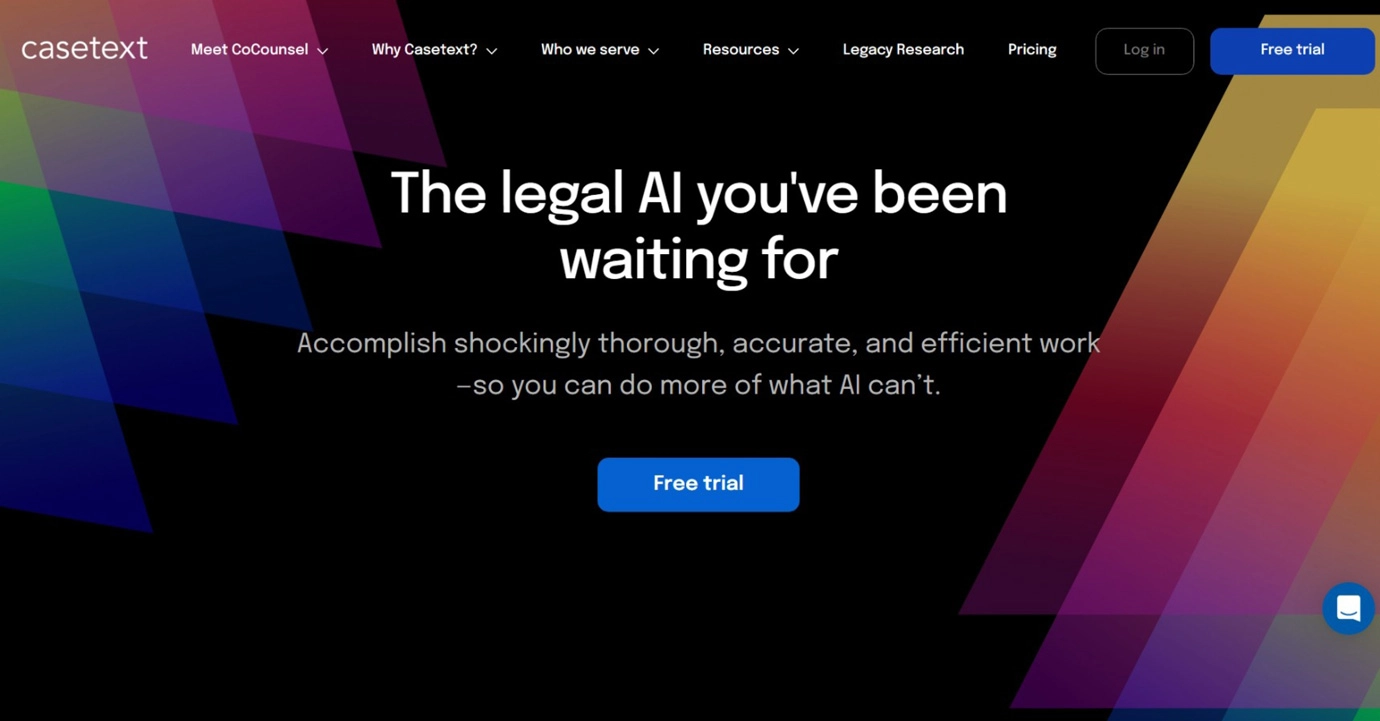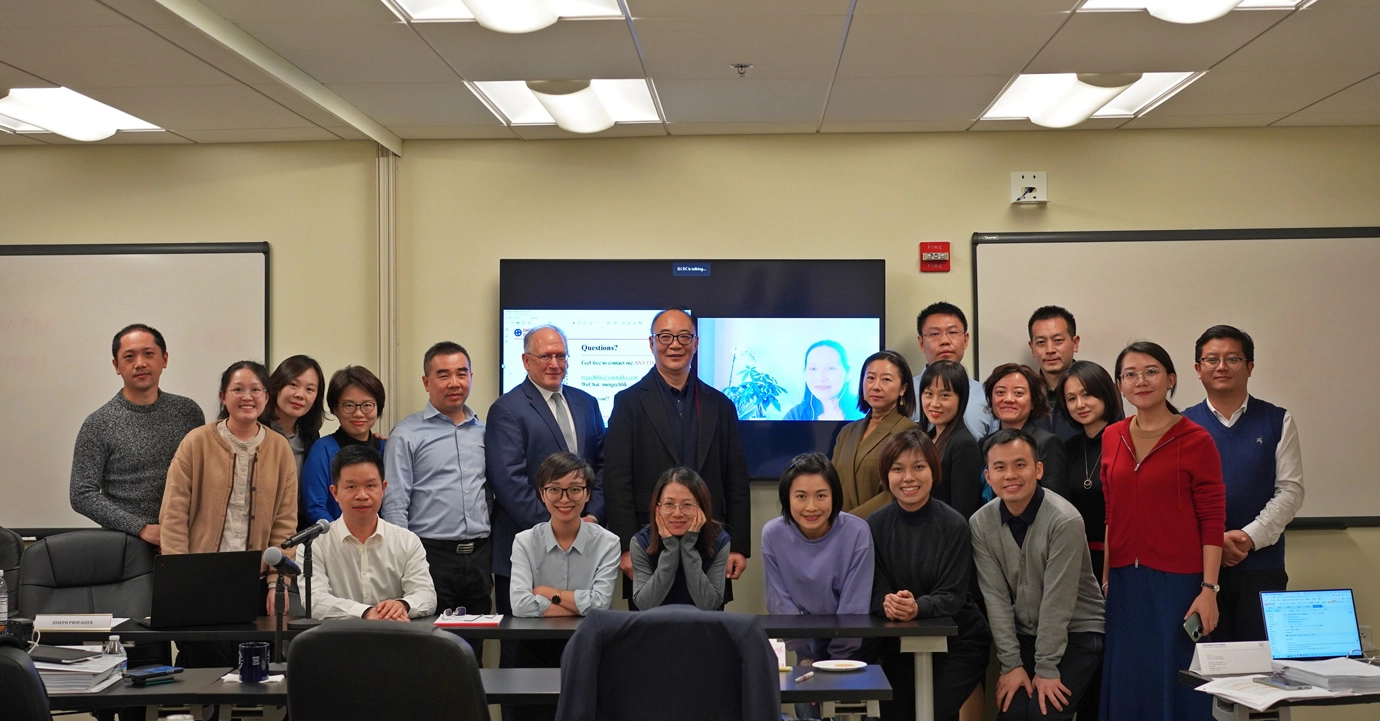AI Legal Tools in the United States and China:
Opportunities, Concerns, & Legal Reforms†

The OpenAI drama made my preplanned talk on AI legal tools delivered last Friday to a delegation of Chinese lawyers visiting Washington D.C. unexpectedly timely. The firing and re-hiring of CEO Sam Altman inspired in-depth discussions of opportunities and concerns related to these tools. In the case of China, the Chinese leadership may come to the conclusion that the opportunities presented by these tools outweigh the concerns and move to take steps that can directly help develop more reliable AI legal tools and indirectly bring about effective legal reforms in the country.
The Case of the United States
- Major Developments
Among various AI legal tools in the United States, CoCounsel stands out and its rapid rise presents a compelling story about the excitement surrounding these tools.
“[…] CoCounsel stands out and its rapid rise presents a compelling story about the excitement surrounding these tools.”
CoCounsel was launched in March 2023, merely a few months after OpenAI astonished the world with the release of a revolutionary tool, ChatGPT, in November 2022. Built on GPT-4 (i.e., Generative Pre-trained Transformer 4, the most powerful, publicly available large language model created by OpenAI until the recent release of GPT-4 Turbo), CoCounsel, according to its own description, helps lawyers “accomplish shockingly thorough, accurate, and efficient work” so that they “can do more of what AI can’t”. CoCounsel can, within minutes, finish a task such as reviewing a document, analyzing a contract, or preparing a legal research memo.
The exceptional capabilities of CoCounsel led Thomson Reuters to act swiftly. In June, Thomson Reuters announced its plan to acquire Casetext, a ten-year-old legal startup that developed CoCounsel, for USD 650 million. Two weeks ago, only several months after the acquisition deal was finalized in August, Thomson Reuters released AI-Assisted Research on the company’s legal research platform, Westlaw. Integrated with both CoCounsel’s capabilities and Westlaw’s trusted databases of legislation, cases, and other resources, AI-Assisted Research can, in response to a user’s query expressed in conversational language, quickly deliver an answer in the form of a narrative supported by cited cases and other materials. According to Thomson Reuters, more AI-integrated products will be released in 2024 inside and outside the United States.
The competition facing Thomson Reuters is fierce, as multiple competitors, such as LexisNexis’s Lexis+ AI, all claim to have developed or be developing the capabilities to deliver speedy and reliable results.
- Concerns Outweighed by Opportunities
Despite the impressive performance of these AI legal tools, their inability to deliver 100 percent accurate results remains a key concern because legal professionals cannot risk making any mistakes in their practice. For example, while AI-Assisted Research can generate results cited with sources stored in Westlaw’s trusted databases, the potential omissions of related sources make human research indispensable. In fact, in its disclaimer, the company cautions that inaccuracies may occur and recommends that additional research be conducted.
Another key concern about these AI legal tools is whether their development may lead to outcomes that are a threat to humanity. The firing and re-hiring of Sam Altman under unclear circumstances have heightened this concern. There is suspicion that Altman was initially ousted from OpenAI because he was not candid about the company’s development of a groundbreaking AI model reportedly named “the Q* model”. Now that Altman is back in his leadership position for the company, critics worry whether OpenAI is truly committed to its mission: “to ensure that artificial general intelligence—AI systems that are generally smarter than humans—benefits all of humanity”.
Given these two concerns, the coming year will likely see stiffer efforts to improve the technology and databases as well as increased public scrutiny and regulation of this industry. Nonetheless, the opportunity to generate considerable revenue will continue to drive Thomson Reuters and other serious players to invest heavily in the industry. In fact, Thomson Reuters has announced its commitment to invest more than USD 100 million per year in artificial intelligence.
The Case of China
- Progress Limited by Databases
China lags behind the United States in the development of AI legal tools. Ernie 4.0, a product of Baidu that, according to this Chinese AI frontrunner, has capabilities on par with OpenAI’s GPT-4 model, was not launched until mid-October.
“Will a product integrated with Ernie 4.0 and trusted databases of Chinese legislation, cases, and other resources […] be released soon?”
Will a product integrated with Ernie 4.0 and trusted databases of Chinese legislation, cases, and other resources—in the same manner as Thomson Reuters’s AI-Assisted Research is integrated with GPT-4-powered CoCounsel and Westlaw’s trusted databases—be released soon? The answer is: probably not.
Even if Ernie 4.0 is indeed as powerful as GPT-4, any AI legal tool built on Ernie 4.0 cannot, at this stage, deliver results as impressive as AI-Assisted Research because of two major limitations in the databases of Chinese legislation, cases, and other resources. First, those Chinese databases that are owned by private companies are incomplete. For example, while these databases may have Guiding Cases and Typical Cases, both of which are released by the Supreme People’s Court from time to time to provide guidance to all Chinese courts, they do not contain all original judgements rendered by Chinese courts of different levels.
The second major limitation is the quality of the databases. Unlike private companies, the Supreme People’s Court does have all cases. Therefore, the Supreme People’s Court can, arguably, invite Baidu to design a product strictly for Chinese judges’ use by integrating Ernie 4.0 with its complete databases. Yet, the accuracy of this product will still be compromised by inconsistencies existing in the databases. Inconsistent applications of legal rules by Chinese courts, as reflected in inconsistent judgments, remain a problem. The problem has, to some extent, been addressed by Guiding Cases—China’s de facto binding precedents, through which the Supreme People’s Court provides lower courts with guiding principles that should be consistently applied in cases similar to Guiding Cases. However, the fact that there are inconsistent applications of Guiding Cases by Chinese courts (see a study published today by SINOTALKS®) shows that the quality of the databases needs to be improved.
- Opportunity to Strengthen the Chinese Legal System
The development of AI legal tools in China also centers around two key concerns about inaccurate results and humanity-threatening outcomes, while industry leaders have strong hopes to be able to monetize these tools.
To help address the concern about against-humanity outcomes, China has already introduced multiple AI-related rules, including the Interim Measures for the Administration of Generative Artificial Intelligence Services (effective as of August 15, 2023). More regulations are expected to be released to address new issues arising from this new industry.
With respect to the concern about inaccurate results, Chinese leaders may become driven to improve the quality of Chinese legal databases if they understand how AI legal tools can help strengthen the Chinese legal system. First, armed with these tools, Chinese judges, many of whom handle a few hundred cases per year, will be able to work more efficiently. Second, for underprivileged individuals who believe that litigation is the only means to resolve their problems, these AI legal tools allow them and/or their pro bono attorneys to quickly assess their cases and consider alternative dispute resolution methods such as mediation. This will further reduce the judiciary’s caseload. Third, powerful AI legal tools can support the online dispute resolution mechanism that China has been promoting to better support domestic and cross-border e-commerce transactions.
Consequently, measures taken to improve the quality of Chinese legal databases will not only help develop more reliable AI legal tools, but also bring about positive changes in the Chinese legal system.
† The citation of this article is: Dr. Mei Gechlik, AI Legal Tools in the United States and China: Opportunities, Concerns, & Legal Reforms, SINOTALKS.COM®, In Brief No. 38, Nov. 29, 2023, https://sinotalks.com/inbrief/artificial-intelligence-legal-tool.
The original, English version of this article was edited by Nathan Harpainter. The information and views set out in this article are the responsibility of the author and do not necessarily reflect the work or views of SINOTALKS®.






